Bolster healthcare with better data connectivity

The ability to harness the power of data exchange among healthcare providers can change the face of public health in Bangladesh. But it is easier said than done. Professionals in our healthcare systems often say that we have achieved an ideal level of health data connectivity. That is an erroneous assumption. The ability to share data laboriously among a few platforms falls short of true data interoperability.
In an ideal state of health information exchange, Bangladesh should have three levels of data connectivity: district or local, division or regional, and state or national. Beyond that, we should have a single network, like the Trusted Exchange Framework and Common Agreement (Tefca) in the US, for a uniform platform to support business, technical, and regulatory aspects of transporting data across the country in a more meaningful and cohesive manner.
The local health data connectivity networks will link care providers so that when patients transition between care facilities, the care teams can extract their clinical records from connected facilities across the district. These facilities typically cannot afford the heavy infrastructure and hefty costs to join national platforms. Technology vendors can facilitate basic data-sharing services at low costs for such entities, providing them with a lifeline for local data-sharing. Regional health information exchange organisations will integrate local platforms in the division under one umbrella, and provide a gateway to national networks.
Once the three-tiered goals are accomplished, healthcare communities must work to build one umbrella that will link all data-sharing mechanisms at local, regional, and national levels. The system will provide governance and policies to create further coherence and coordination in sharing data nationally. Consider US' Tefca, designed to offer a "universal floor" to share data via the most robust national networks. These platforms must pass rigorous data safety, security, and interoperability measures. The initiative breaks down silos.
Integration with regional health data-sharing organisations is greatly useful when patients seek care at a facility outside their usual settings – the district. Regional networks will have richer data than local platforms, owing to all the patient data from connected hospitals across districts under their aegis.
The national health information networks will be on top of the tier delivering the most comprehensive data repository on patients, as they will provide linkages to all local and regional health information platforms, and other national networks. These networks offer a seamless and connected experience of care and the best practice for data dissemination. More importantly, national platforms offer flexibility in meeting diverse business, technical, and regulatory needs around health data transmission.
Health systems should be at the front and centre of data connectivity because they must provide the best patient outcomes, and without data, they can offer only substandard care.
Once the three-tiered goals are accomplished, healthcare communities must work to build one umbrella that will link all data-sharing mechanisms at local, regional, and national levels. The system will provide governance and policies to create further coherence and coordination in sharing data nationally. Consider US' Tefca, designed to offer a "universal floor" to share data via the most robust national networks. These platforms must pass rigorous data safety, security, and interoperability measures. The initiative breaks down silos.
To build the federated data infrastructure mapped out above, interprofessional and intersectoral consensus building and shared decision-making are critical. Three actors must be involved in this process: the government, the technology companies, and the health systems.
The government has the ultimate authority and duty to do the heavy lifting to uplift health care. They must also regulate and support small providers to integrate with health information exchange initiatives. Health data transaction relies on internet connectivity. Unfortunately, many areas, especially rural communities, are unable to afford the costs. Moreover, not all physicians' offices have office space or trained employees to use technology. The government must incentivise these geographically and economically disadvantaged providers by funding high-speed internet and providing necessary resources.
Communication technology companies must step in to improve health care for the greater good, alongside promoting their business. Once healthcare systems see the benefits of technology, they will heavily invest in it, creating more opportunities for the companies. Increased utilisation of health information exchange can set the stage for a massive diffusion of technology. Ideally, the companies will create enough revenue to be able to even offer free connectivity services for small practices, whether or not the government can fund them.
Health systems should be at the front and centre of data connectivity because they must provide the best patient outcomes, and without data, they can offer only substandard care. Data sharing among care providers not only helps support the best patient experience but also saves lives. With high patient satisfaction, health systems create more revenue opportunities for themselves as well.
In an ideal state, national data exchange can do miracles to find missing persons and support uninterrupted healthcare during disasters, when patients are displaced. During emergencies, patients often have to leave behind their medication and prescriptions, and their routine care providers are simply unable to operate. In those times, patients seek care outside their normal settings. At a connected facility or emergency shelter, the technology will enable clinicians to investigate patients' medical records, without starting over with examination and treatment. It will also create alerts letting care providers know where their patients have been treated, and help connect them to their loved ones.
We are clearly far from the ideal future state. Claiming that the country has achieved true data interoperability is misleading at best.
ABM Uddin is a healthcare consultant for the Florida Agency for Health Care Administration. Views expressed in this article are the author's own.

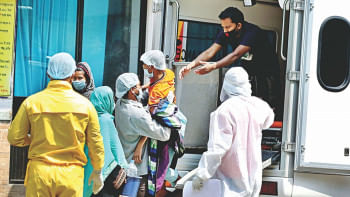
 For all latest news, follow The Daily Star's Google News channel.
For all latest news, follow The Daily Star's Google News channel. 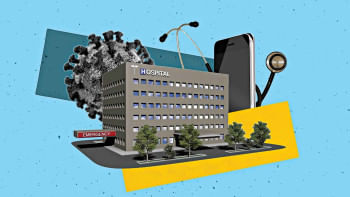

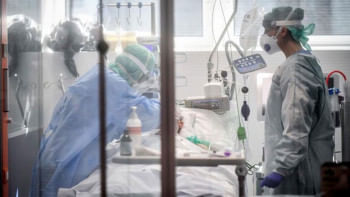
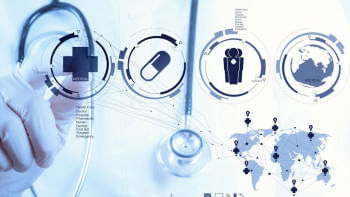



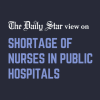





Comments